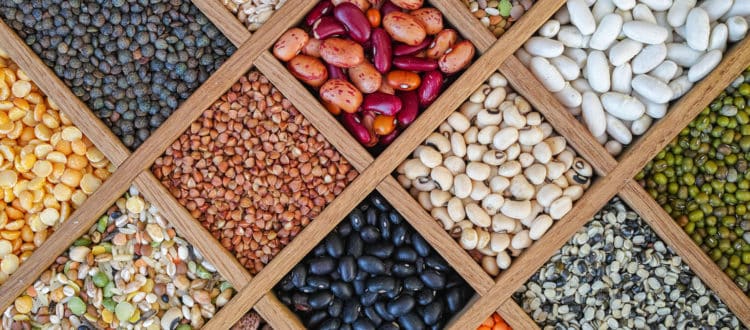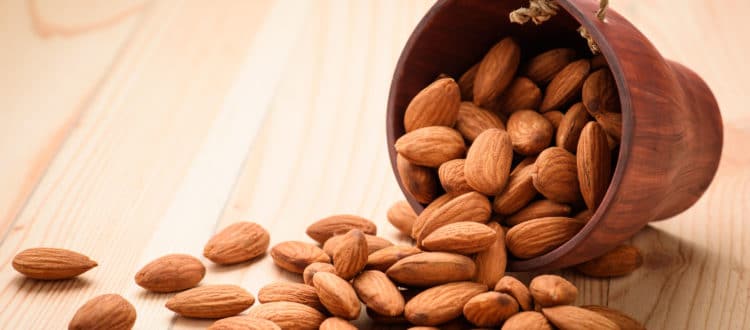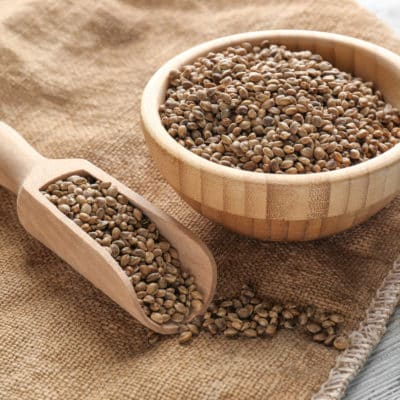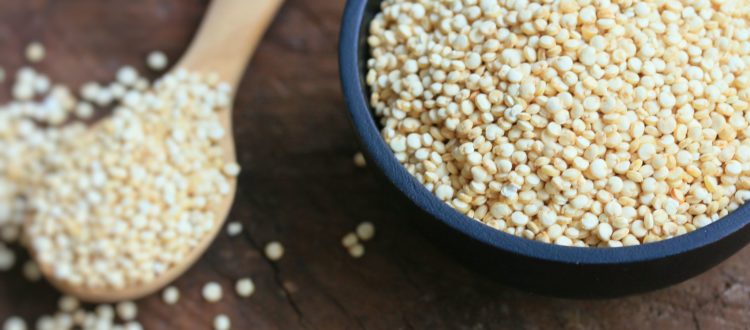Busting the Myths of Plant-Based Protein
No matter your diet, protein plays an essential role in every cell in your body. The human body uses protein for a lot of different purposes such as repairing tissues, producing enzymes and hormones, and building muscle. But even though it is a necessity for the body to function, protein is not stored in the way that the body stores carbohydrates and fats. This increases the importance for people to maintain a steady consumption of protein to meet their needs.
According to the Academy of Nutrition and Dietetics, the recommended daily intake of protein is 0.8 grams per kilogram of body weight (or 0.35 grams per pound). For a person weighing 170 pounds, this would be a minimum of 60 grams of protein per day. Since this is a minimum, you may have to consume more protein if you’re looking to lose weight or gain muscle, but how do you maintain this steady intake?
Protein supplements are a fantastic source as they are not only for bodybuilders. With a wide variety to choose from, it can be difficult to figure out which protein supplements are right for you. Plant-based protein is a great option for many reasons; however, there are a lot of misconceptions about it when compared to animal-based protein.
Myth #1: Plant-Based Protein Provides Nothing More than Protein
As the name states, plant-based protein is protein derived from plants (vegetables, fruits, grains, nuts, etc.). So, if we already know that vegetables, fruits, and grains are full of vitamins and minerals, then this is a false claim. One major benefit plant-based protein provides is that it is alkaline-forming, which can help combat inflammation, reduce stress, and protect bone health. This is important because the typical North American diet is acid-forming, which mainly involves meat, bread, and other related foods.
Myth #2: Plant-Based Protein Is Not Complete
Proteins are made up of 20 amino acids. The human body is able to produce 11 of these amino acids, leaving the remaining 9 to be obtained through one’s diet. A complete protein is one that contains all 9 amino acids. This is where animal-based protein shines because most are complete, whereas only a handful of plant-based proteins are complete. These complete plant-based proteins include hemp seed, quinoa, buckwheat, and soy. Though most are not complete, each plant-based protein contains a mix of the essential amino acids, which calls for a proper balance of consuming the right ones to receive all 9.
Myth #3: Plant-Based Protein Cannot Build Muscle
In a study by the University of Connecticut, research found that plant-based proteins, such as rice protein, generated a larger increase in muscle thickness and lean body mass in comparison to participants who used whey protein. Additionally, plant proteins are rich in antioxidants which can reduce exercise-induced inflammation, allowing for faster recovery times.
Myth #4: Plant-Based Protein Is Not Absorbed as Effectively as Whey Protein
Because of its greater biological value and essential amino acid content, animal protein, such as whey, is able to be broken down and absorbed by the body faster than plant protein; however, one study found that rice protein may offer this similar benefit. More importantly, a slower speed for protein absorption is not an issue because this allows the body to use the protein for energy rather than for storage and can increase the antioxidant potential to protect the immune system.
Though some benefits have already been discussed to dismiss their misconceptions, plant-based proteins contain other natural and healthy abilities.
Provide a Sustainable Diet
There are plenty of ways to reduce your carbon footprint and replacing animal-based protein with plant-based protein is another option. Requiring less land, water, and other resources, plant-based protein immensely supports the betterment of the environment as diet affects the planet more than the average commute to work.
Reduce the Risk of Obesity
Deriving from sources like fruits and vegetables, plant-based protein provides few calories. Additionally, protein takes longer to digest than carbohydrates and fats, giving you a better chance to burn extra fat while your body metabolizes the protein. By boosting the metabolism and providing fewer calories, plant-based protein can protect you against unwanted weight gain.
Contain Minimal Allergens Compared to Other Sources of Protein
Whey is a great source for protein; however, some people experience bloating and gas because they are allergic to whey. Also, other protein supplements may contain gluten, which can deter those who have celiac disease. When producing a supplement, you are far less likely to harm someone with plant-based protein because you won’t run into the same issues as animal-based protein supplements, like whey.
So, whether you want to lose weight, improve your diet, or preserve the environment, plant-based protein can lead you in all of these directions. Incorporating it into your diet can be easier than you think when you have a better understanding.
*Disclaimer: These statements have not been evaluated by the Food and Drug Administration. These products and supplements are not intended to diagnose, treat, cure, or prevent any disease.




